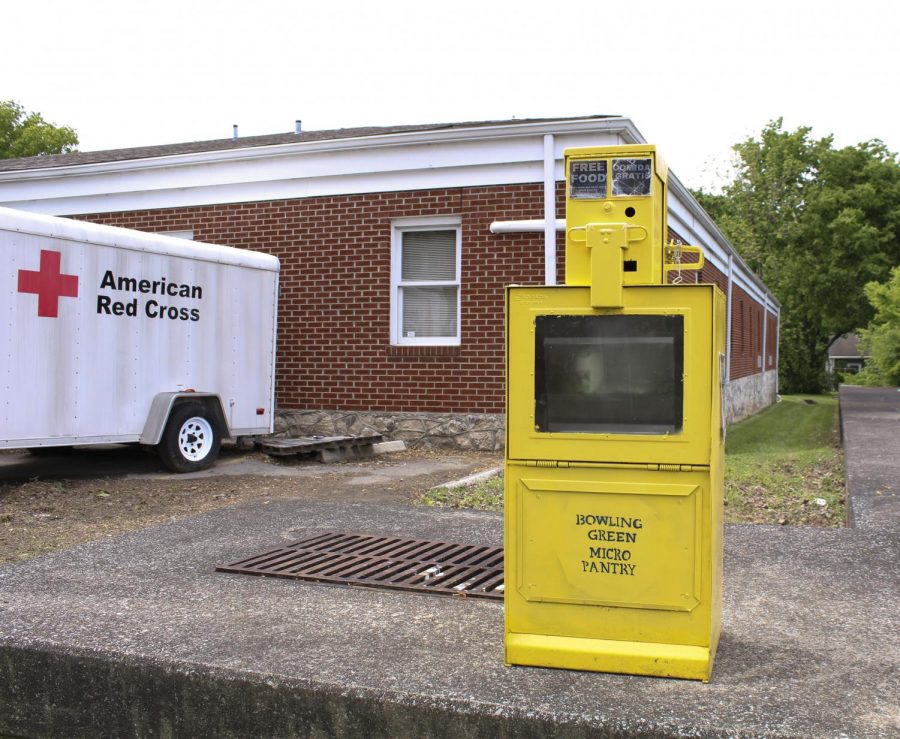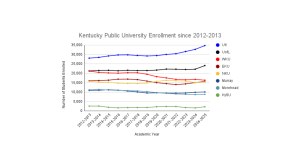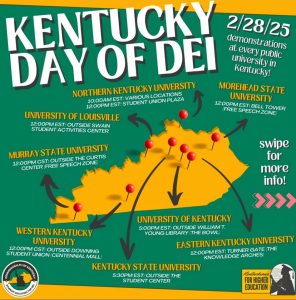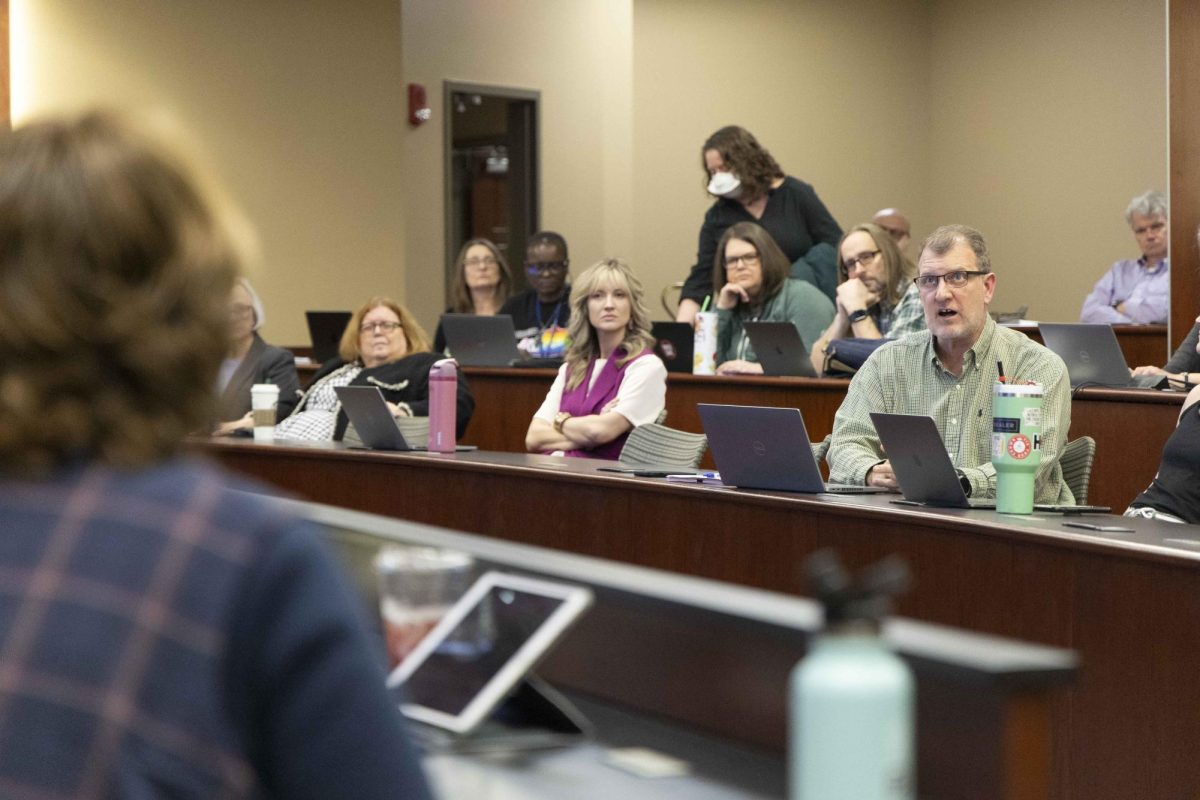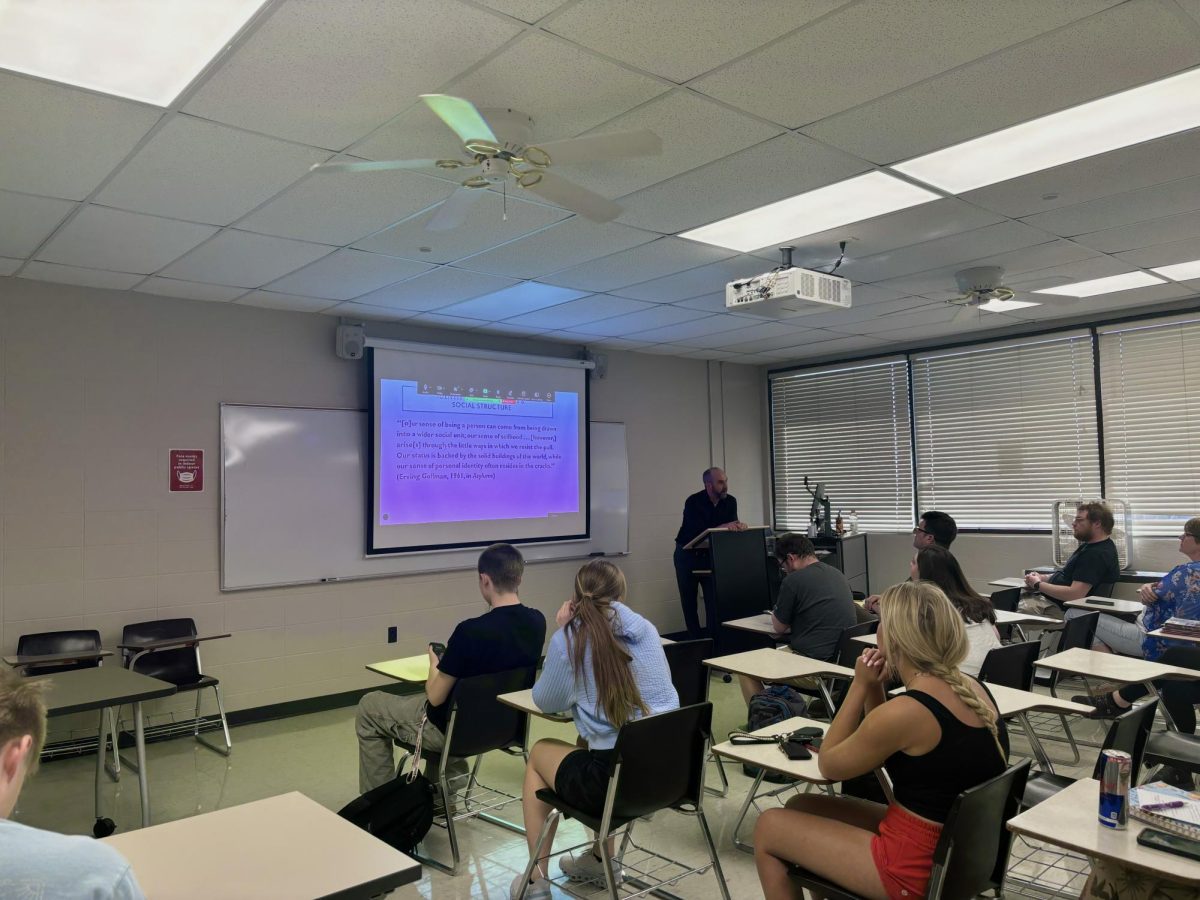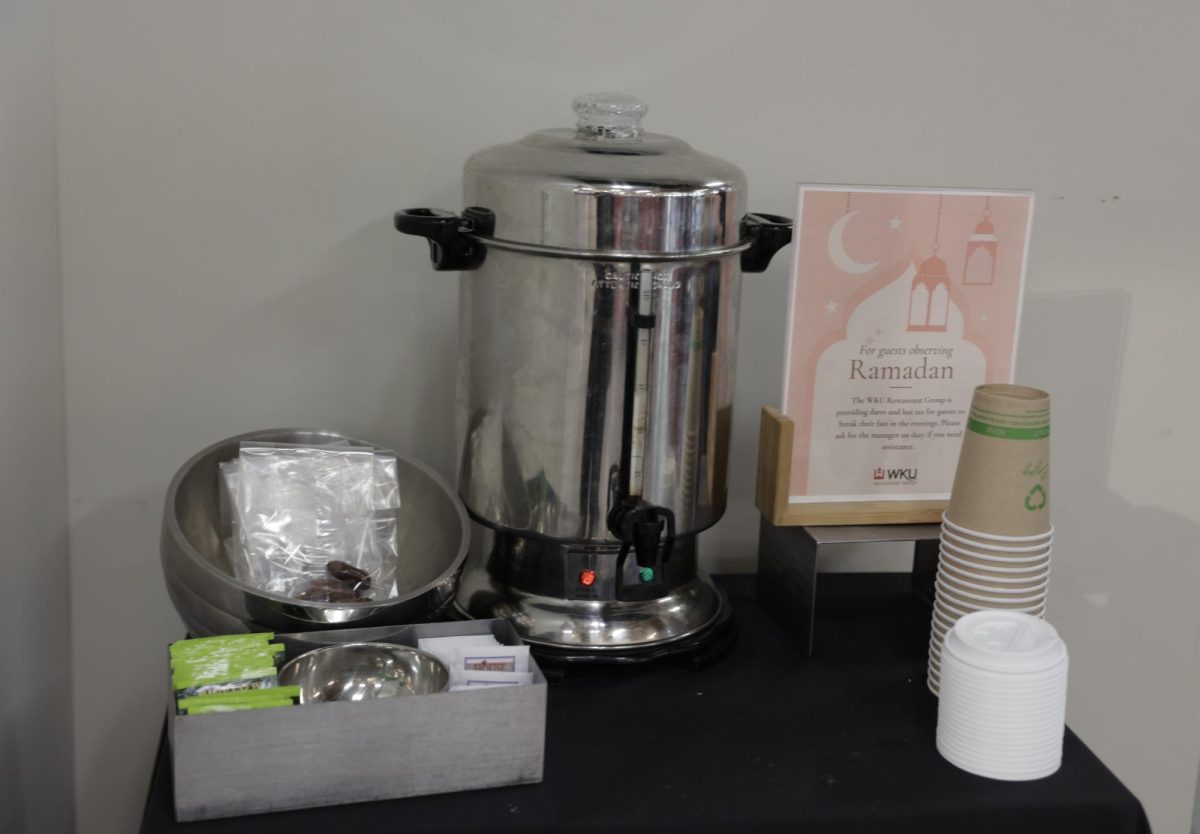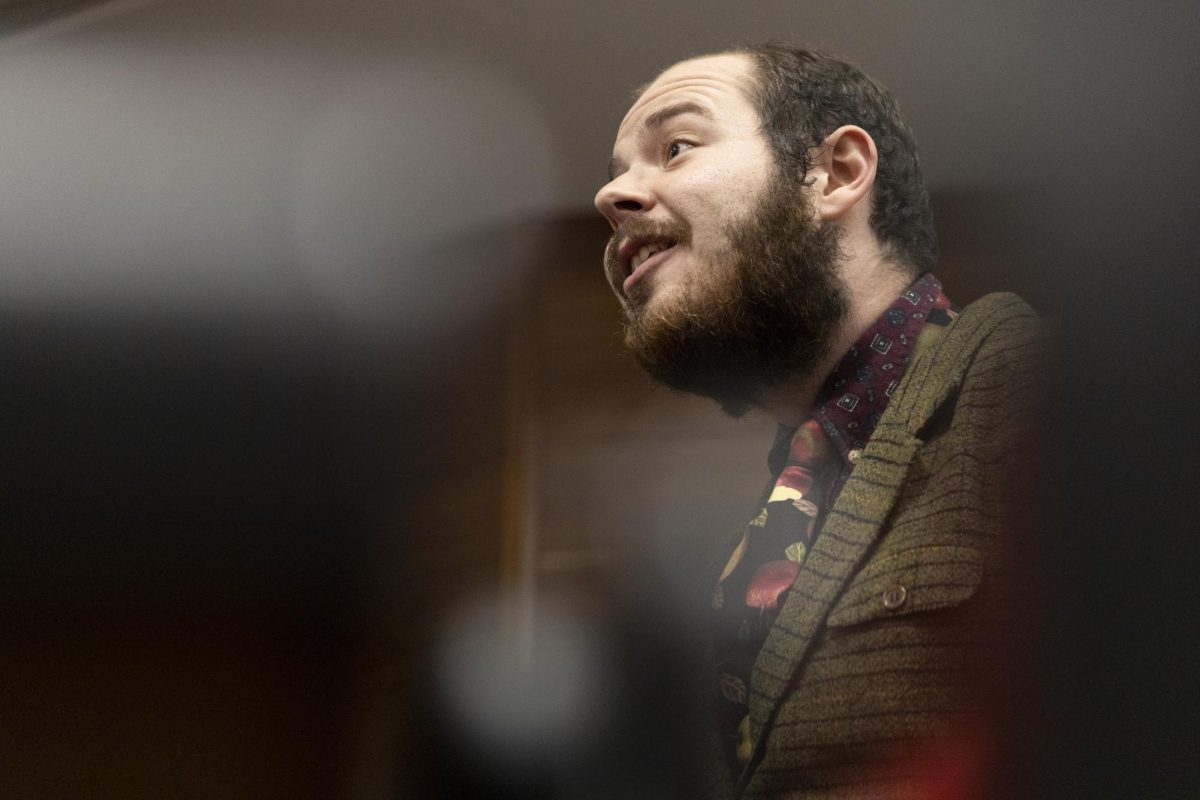WKU student starts micropantries to help food insecurity in Bowling Green
One of five micro pantries in an old newspaper vending machine that was donated by the Bowling Green Daily News. This micropantry is located at 958 Collett Avenue, across from International Center of Kentucky.
May 11, 2021
Food insecurity is a national issue, and in Bowling Green, it’s no different. To combat this growing problem, a WKU student recently started micropantries in different locations to help people who do not have consistent access to food.
According to their most recent data from Feeding America, their 2018 Map the Meal Gap study, overall food insecurity rates are at 14.9 percent in Kentucky and 12.5 percent nationwide. In 2018, 13.5 percent of all Warren County residents faced food insecurity.
Bowling Green Micropantry is a new project created by WKU political science student, Jason Lowe for his Young Leaders for Social Change fellowship with Southern Partners. Southern Partners is a regional community foundation located in Atlanta, GA, governed by people of color grassroots leaders from rural communities across 12 states in the Southeast. At the end of the fellowship, students were to create a project such as a non-profit, research, or documentary.
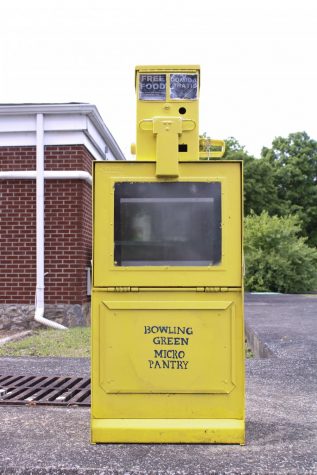
When coming up with ideas for what his project would be, Lowe said he thought about the pantries he saw in his hometown of Glasgow and throughout the United States. Mircopantries are commonly seen in Illinois, South Carolina, and many large cities.
Food insecurity is something that Lowe specifically wanted to focus on when deciding on a project.
“I knew I wanted to do something to do with poverty and food insecurity,” Lowe said. “This was something I thought we probably already had in Bowling Green and then I looked into it and we didn’t so that’s why I decided to choose this project.”
The micro-pantries are in old newspaper street tins and are located throughout Bowling Green. The three current locations of the micropantries are 958 Collett Avenue, Corner of West 12th and Clay Street, and Natcher Elementary School.
“One of them is at school so the school checks that one for me and makes sure that everything is there but the other two I check pretty much everyday or every other day,” Lowe said. “Just to make sure that there’s nothing in there that shouldn’t be.”
Vandalism has been one issue that impacted the project. Lowe said by vandalizing the pantries people are affecting some people’s only access to food.
“We had one issue where one of them actually did get stolen so I had just replaced that so that couldn’t happen again,” Lowe said. “So, since it’s a new project I’ve been checking it like every day just so I can get a feel for how often needs to be checked.”
Lowe uses a system to let him know what is in any of the pantries at any time by having people log what they take or donate.
“I have a tracking system using a QR code that people can do some basic demographic questions and second try to track some of that stuff, but it’s used more by people who are donating. It can be used for either one. If you’re donating or taking items so I know what’s in the boxes at any given time.”
The micropantries are open to anyone who needs food for any circumstances so that data is a little harder to be tracked in comparison to the quantity of food.
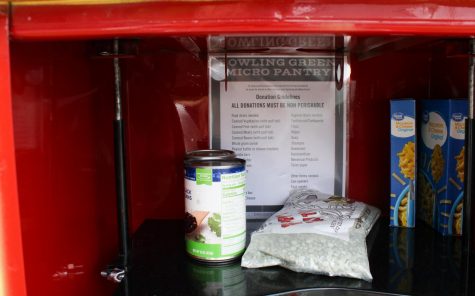
“I haven’t gotten a whole lot of response from people who are using it which is fine because the whole point of the project is there’s no paperwork and we want it to be really accessible so that anyone can use it at any time they’re open 24/7,” Lowe said. “So I would just have to estimate that because we don’t really have much data it’s really awesome because every time I go check it is filled up.”
Lowe said the team helping with this project thinks that the majority of people taking food from the pantries are people who are homeless or are struggling financially to find access to food.
“It’s open to anyone so we think a lot of people who are homeless do use it and we also think a lot of people who are just trying to make ends meet between paychecks are using it so it’s a range of people,” Lowe said. “So people who may just be a week off on their paycheck or some people who might be in worse circumstances and actually homeless are the types of people we see use them.”
The project has received positive responses from social media and media outlets.
“We keep seeing that money come in so that makes me think that people are responding positively,” Lowe said. “We have a lot of partnerships with other local groups that are really supportive.”
Debra Murray can be reached at debra.murray940@topper.wku.edu. Follow her on Twitter @debramurrayy



